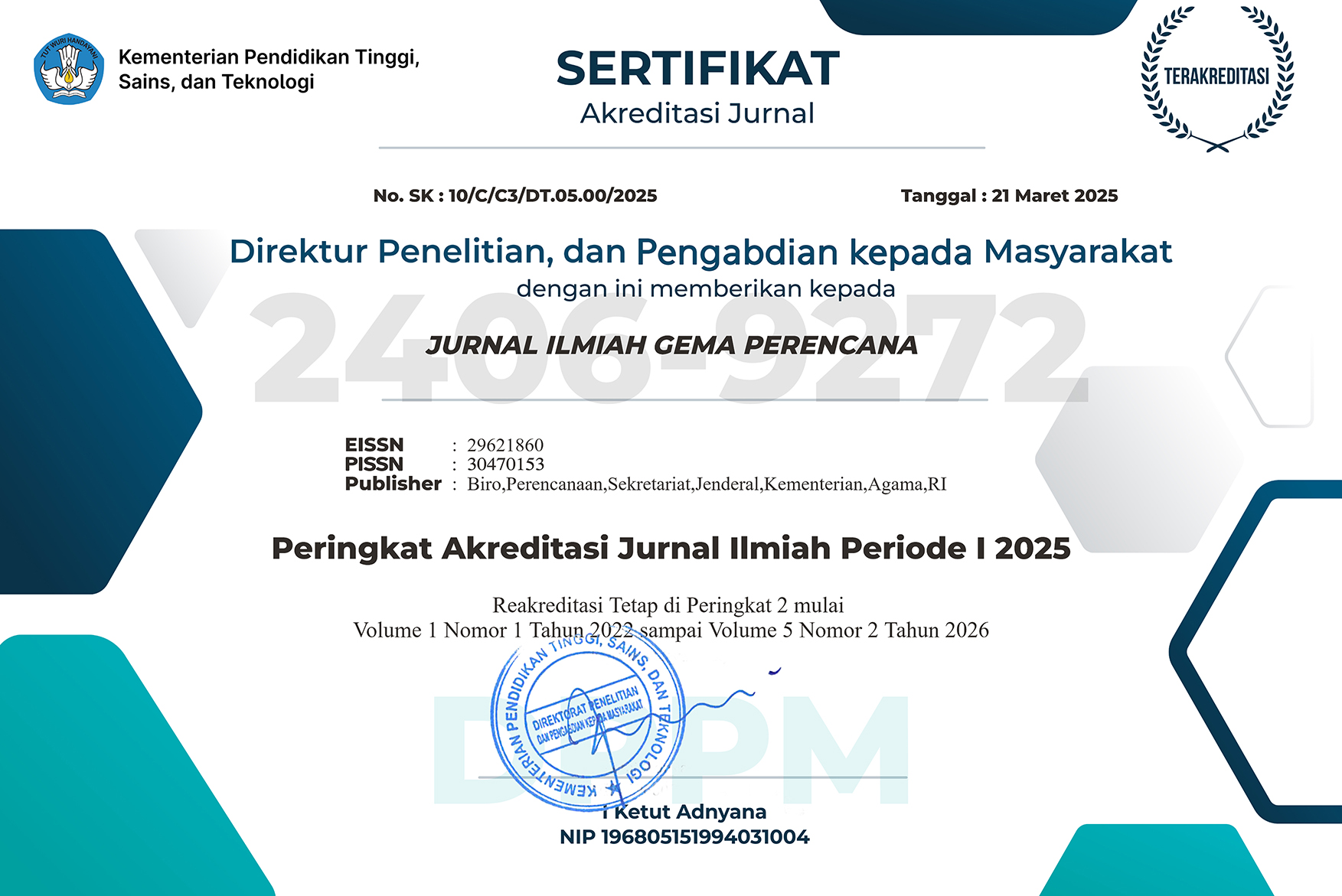Development of Religious Moderation Based on Regional Potential in Aceh Province
DOI:
https://doi.org/10.61860/jigp.v3i1.93Abstract
This policy paper explains that Aceh Province has special characteristics compared to other provinces in Indonesia, namely in terms of regional regulation, social life, and culture. However, the existence of these special characteristics has a negative impact on the low KUB index and religious moderation. Thus, an analysis is needed to solve this problem. The analysis method used to solve the problem is qualitative and the data will be analyzed using SWOT as a basis for using potential as a resource in solving the problem. The results of the analysis reveal that: 1) There is no need to make changes to the indicators of the religious harmony index in Aceh Province if the development of religious moderation has been implemented optimally, namely by maximizing the role of actors of religious harmony, budget, and managerial in the development of religious moderation; 2) The development of religious moderation is carried out by using the potential of existing strengths as supporters to create religious harmony in the application of religious moderation. The conclusion is that the development of religious moderation can be carried out by accommodating the special characteristics and characteristics of the region.
Downloads
References
Abdullah, I. (2010). Konstruksi dan Reproduksi Kebudayaan. Pustaka Pelajar.
Agustino, L. (2017). Dasar-dasar Kebijakan Publik. Alfabeta.
Assegaf, A. R. (2010). Pendidikan Islam Kontekstual. Pustaka Pelajar.
Dunn, W. N. (2000). Pengantar Analisis Kebijakan Publik. Hanindita Graha Widya.
Dunn, W. N. (2003). Pengantar Analisis Kebijakan Publik. Gajah Mada University Press.
Faridah, J. (2013). Toleransi Antarumat Beragama Masyarakat Perumahan. Komunitas: International Journal of Indonesian Society and Culture, 5(1).
Freddy, Rangkuti. (2004). Analisis SWOT Teknik Membedah Kasus Bisnis. Jakarta: Gramedia Pustaka Utama.
Ida Bagus Alit Arta Wiguna, I. ayu M. Y. A. (2023). Moderasi beragama solusi hidup rukun di indonesia. Widya Sandhi, 14(01), 40–54.
Keban, Y. B., & Leton, S. S. (2023). Pendidikan Moderasi Beragama Dalam Penguatan Wawasan Kebangsaan Pada Era Disrupsi Di SD Inpres Ekasapta Larantuka. NALAR: Jurnal Pendidikan dan Kebudayaan, 2(1), 1–8.
Khairi, H. (2014). Modul 1: Konsep Dasar Kebijakan Publik. Analisis Kebijakan Pendidikan Nasional. Universitas Terbuka.
Kismartini&Mualim. (2018). Analisis Kebijakan Penataan Pedagang Kaki Lima (PKL) di Simpang Lima Kabupaten Pati. Dialogue: Jurnal Administrasi Publik Dan Kebijakan Publik, 5(1), 35–53.
M, F. (2020). Manajemen pendidikan moderasi beragama di era digital. ICRHD: Journal of Internantional Conference on Religion, Humanity and Development, 1(1), 195–202.
Nazmudin. (2017). Kerukunan dan Toleransi Antar Umat Beragama dalam Membangun Keutuhan Negara Kesatuan Republik Indonesia (NKRI). Journal of Government and Civil Society, 1(1), 23–39.
Suimi Fales, I. R. S. (2022). Kehidupan Berbangsa dan Bernegara di Indonesia: Menangani Masalah di tidak terdapat pada bangsa lain di Dunia . toleran, dan maslahat yang menunjukan Beberapa di beragama Indonesia sikap yang moderat dalam kehidupan Beragama di Desa Sidodadi Kabupaten Nan. VII(II), 221–229.
Sutton, M. (2006). Toleransi: Nilai dalam Pelaksanaaa Demokrasi. Manajlah Demokrasi, 5(1), 53–60.
Swardono. (2002). Manajemen Strategic Konsep dan Kasus. Yogyakarta: UPP AMP YKPN.
Ulum, R., & Muntafa, F. (2019). Survei Indeks Kerukunan Umat Beragama di Indonesia Tahun 2018. Kementerian Agama RI.
Warsah, I. (2018). Pendidikan Keluarga Muslim di Tengah Masyarakat Multiagama: Antara Sikap Keagamaan dan Toleransi (Studi di Desa Suro Bali Kephiang- Bengkulu). Edukasia: Jurnal Penelitian Pendidikan Islam, 13(1).
Downloads
Published
How to Cite
Issue
Section
License
Copyright (c) 2024 Hasanul Fikri

This work is licensed under a Creative Commons Attribution 4.0 International License.






